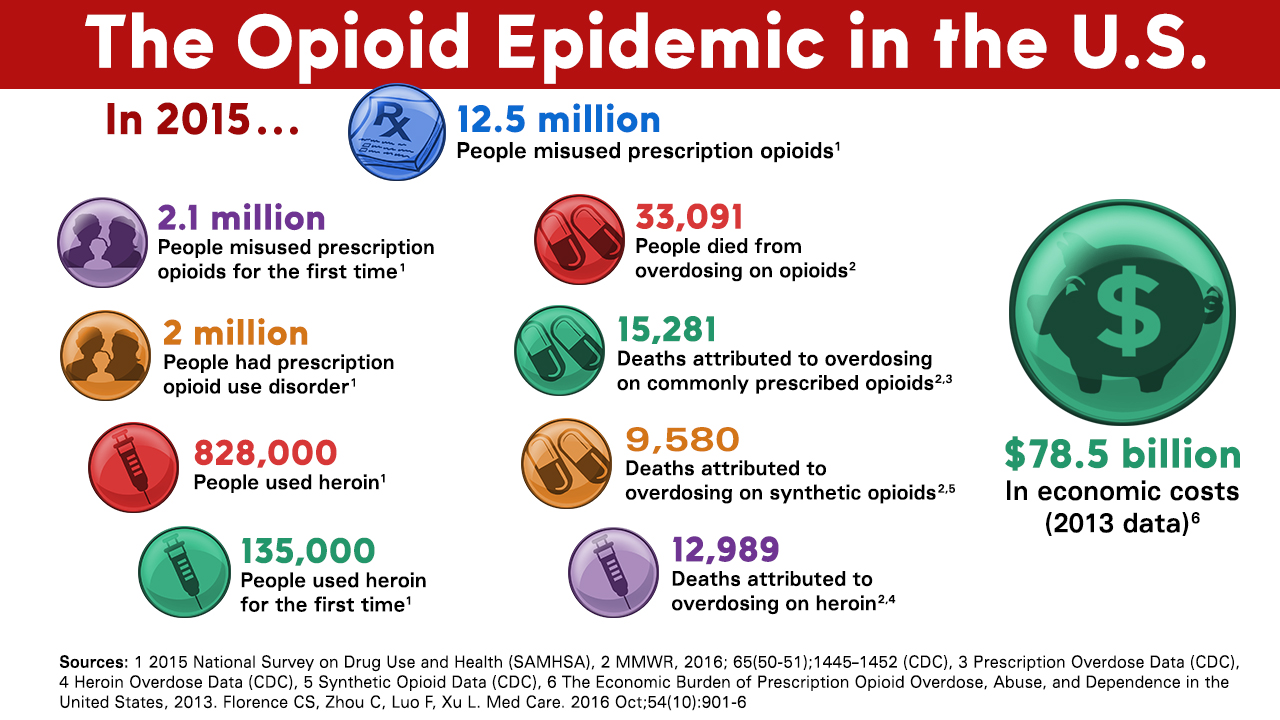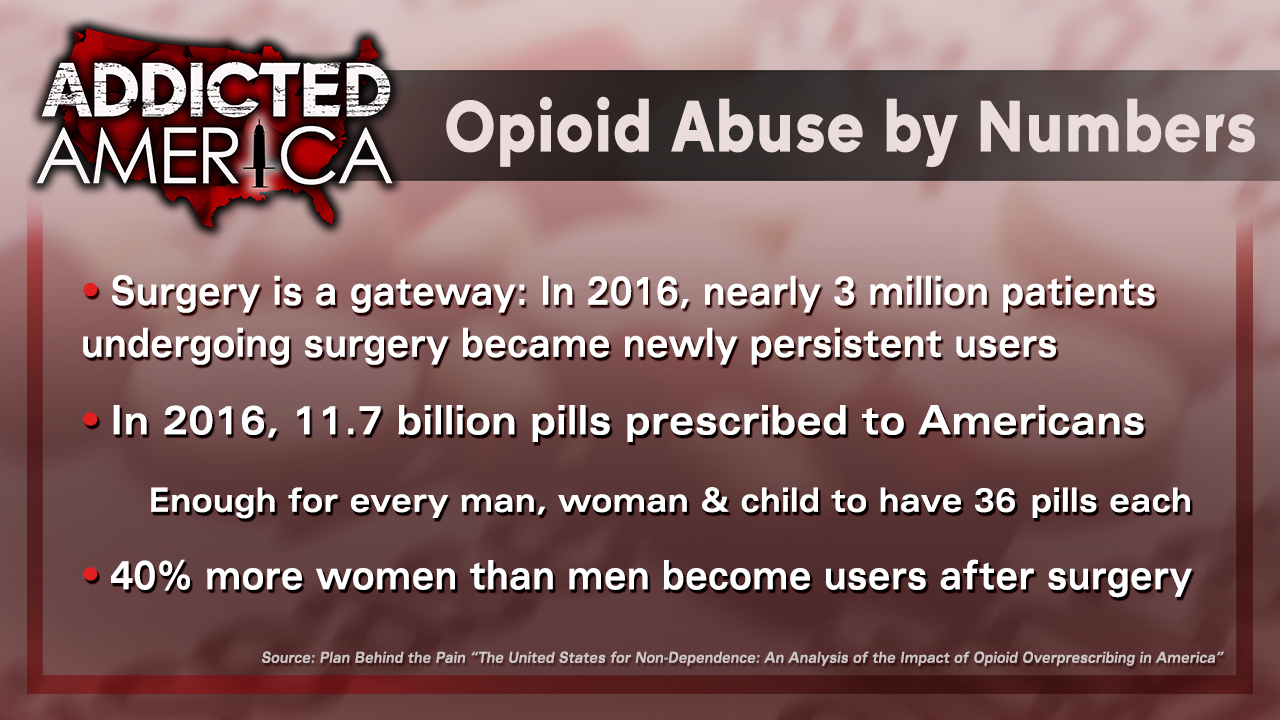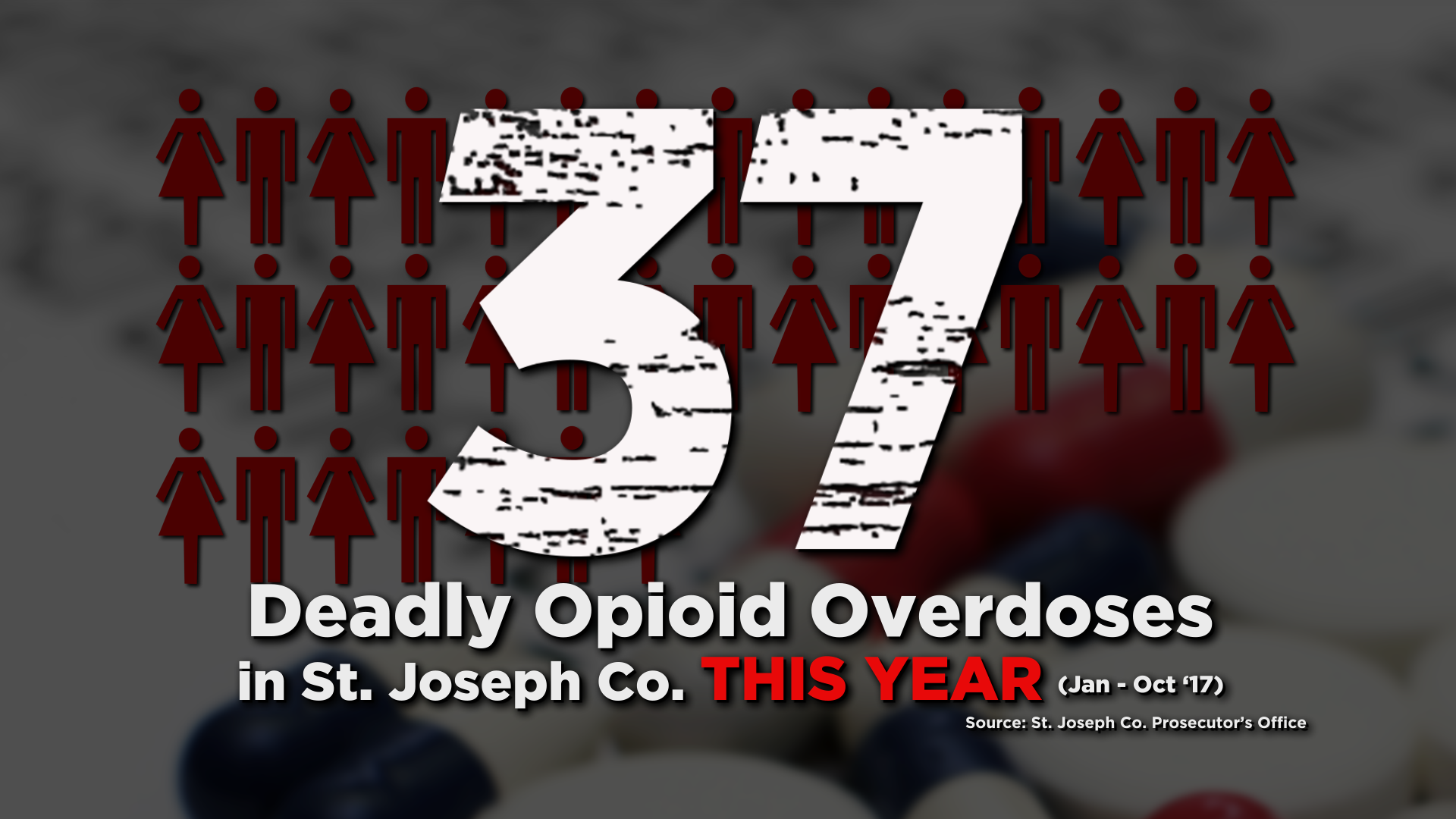How Will This End?: Pain patients struggle to get relief
MISHAWAKA, Ind.— Local pharmacists say that new regulations in place to attack the opioid crisis are causing further suffering for legitimate pain patients.
Mishawaka pharmacist Ray Kadi has been practicing for nearly 30 years. He runs the University Commons Pharmacy in Mishawaka.
“We went through a period where we can feel that we are dispensing a lot of it and we can feel the abuse. It was out of control,” says Kadi.
He estimates that in 2012, 25 percent of the scripts he filled were for pain meds.
Many of those pills, he says, were winding up in the wrong hands.
“We can identify people that bought prescription, bought it and sold it right in the pharmacy parking lot,” says Kadi.
In July, Indiana rolled out new regulations to prevent situations like that.
The guidelines address how doctors can prescribe and how pharmacists can dispense opioids.
Among the rules, a seven day limit on opioid prescriptions for patients.
“That makes a lot of people have to come to the pharmacy every seven days to get their medications. It’s very frustrating,” says Kadi.
Strict guidelines on dosage and quantity make more work for Kadi and other pharmacists. But that’s not what troubles him most.
Since becoming more difficult for patients to get their meds, Kadi says many people are in pain.
He estimates for every 100 prescriptions he fills now, just ten are for pain medications.
“We do have our set of patients that we know need the medications and actually take the medication like they’re supposed to and now they are having trouble getting what they need,” says Kadi.
When ABC 57 first began laying out our coverage for this crisis, we wanted to share the stories of responsible patients that were being negatively impacted. Many local patients brought their concerns to our attention and they wanted their stories shared, too.
But the stigma of opioid use, even when used legally, is keeping them in the shadows.
A Mishawaka woman, we’ll call Mary, agreed to speak with me on the condition of anonymity. I Mary says in 2001 a simple surgery led to severe complications. Due to doctor error, she had several corrective surgeries and lost a kidney. She was in constant, debilitating pain.
When her doctor prescribed an opioid pain reliever, she says it changed her life.
“I was able to live again. I’m able to function; I’m able to do more things. It made a huge difference,” she says.
Mary’s magic fix for a normal life was delivered right to her front door every few months through a mail-order pharmacy.
But, over the summer her shipment arrived with a slash through the bag just big enough for her three month supply to slip out.
While the delivery service and the pharmaceutical company believed her, Mary’s doctor refused to reissue any lost or stolen prescriptions.
“Ultimately, I don’t feel like the doctor believed me and I had been a patient of this particular doctor for several years. I was very upset. You know, this was not my doing and I was going to have to suffer for it,” she says.
Instead of suffering for three months, she found a new doctor who knew she was being truthful.
“It’s not always a drug abuse problem. The people who truly need them are highly monitored and they only take what they need and it’s vital to their lives. Being on the other side of it having the pain issues it’s very frustrating,” she says.
Patients like Mary, suffering and seeking relief are now feeling dismissed by the doctors and pharmacists they hoped could provide some help.
Kadi says he’s frustrated with the changes too and knows that local doctors are doing their best to treat their patients while still complying with the changes.
Expansion to the online database Inspect, used by medical professionals across the state, is a welcome change for Kadi.
He says by better keeping track of a patient’s drug history, patients like Mary will hopefully get the care they need.
“I love playing with my grandson, getting down on the floor with him and just playing with him. It’s those simple things I wouldn’t be able to do. The fact that I have to have them to control my pain, it’s just a part of my life. It was none of my doing,” she says.


















